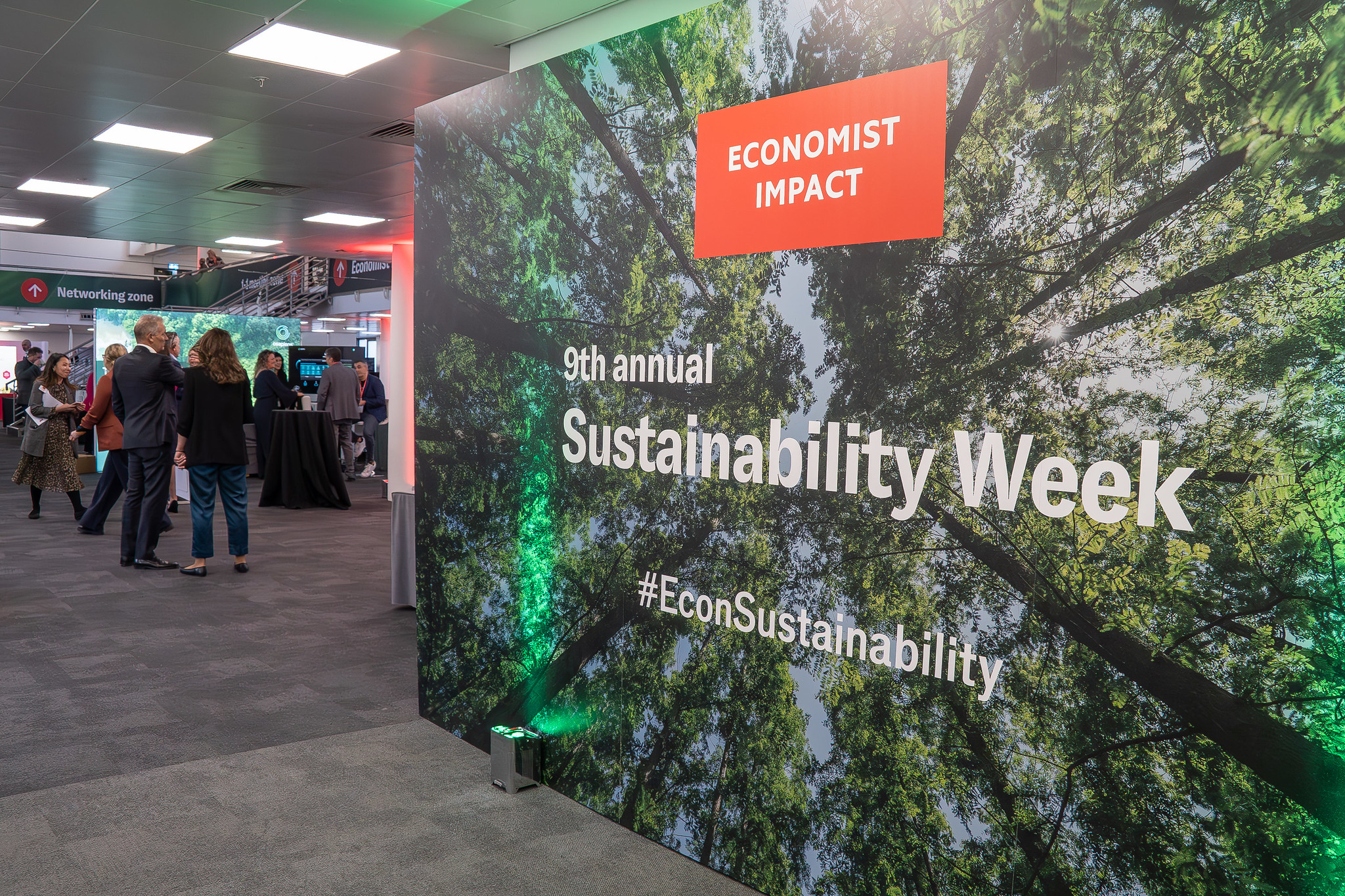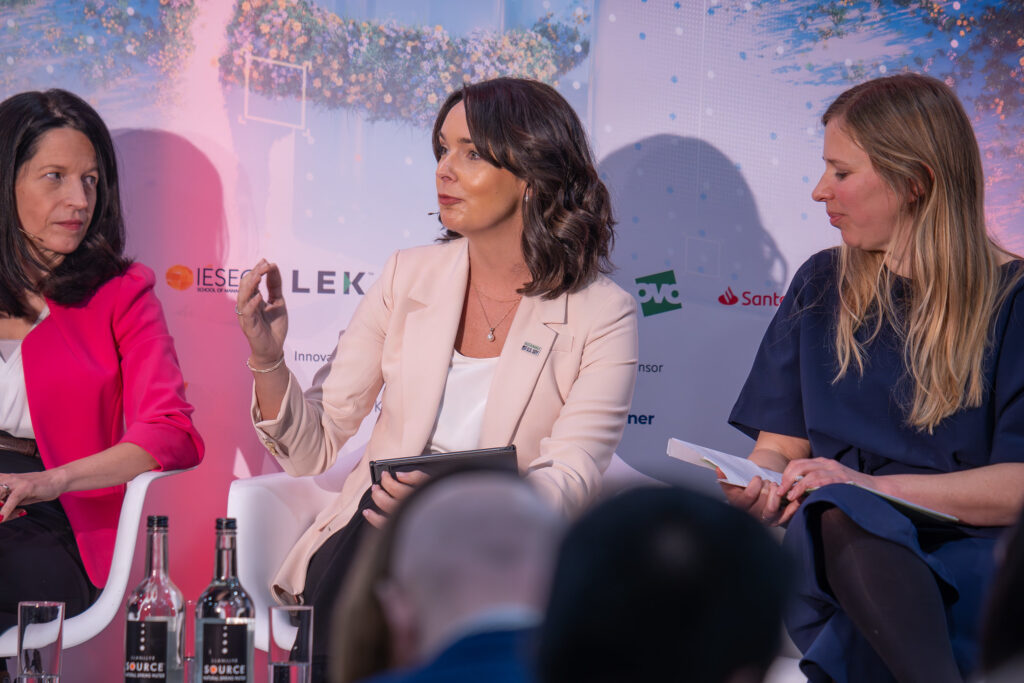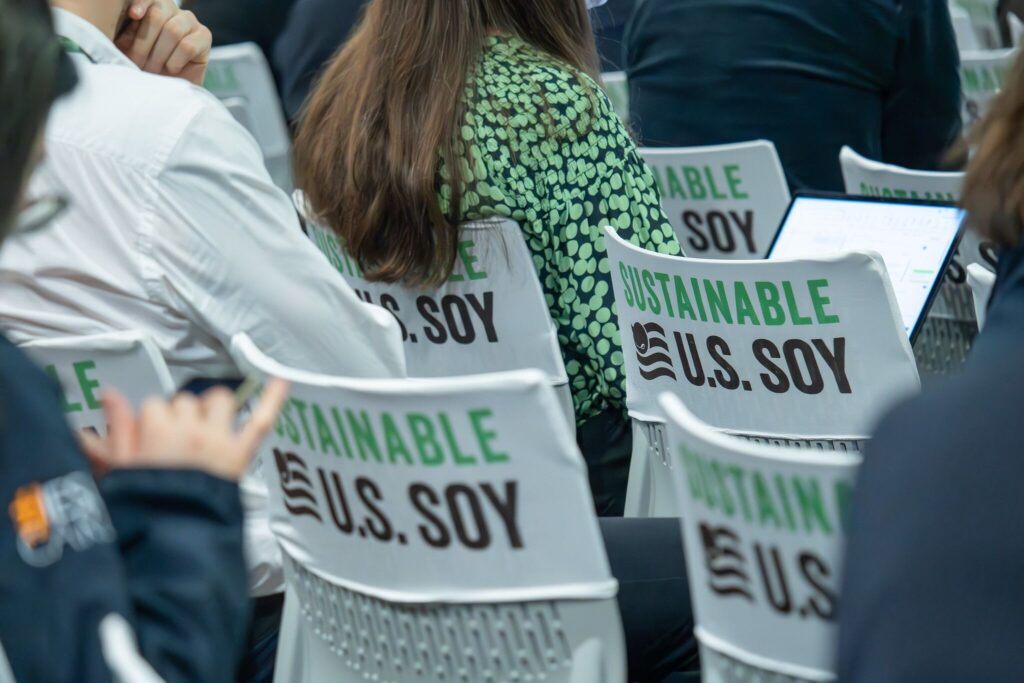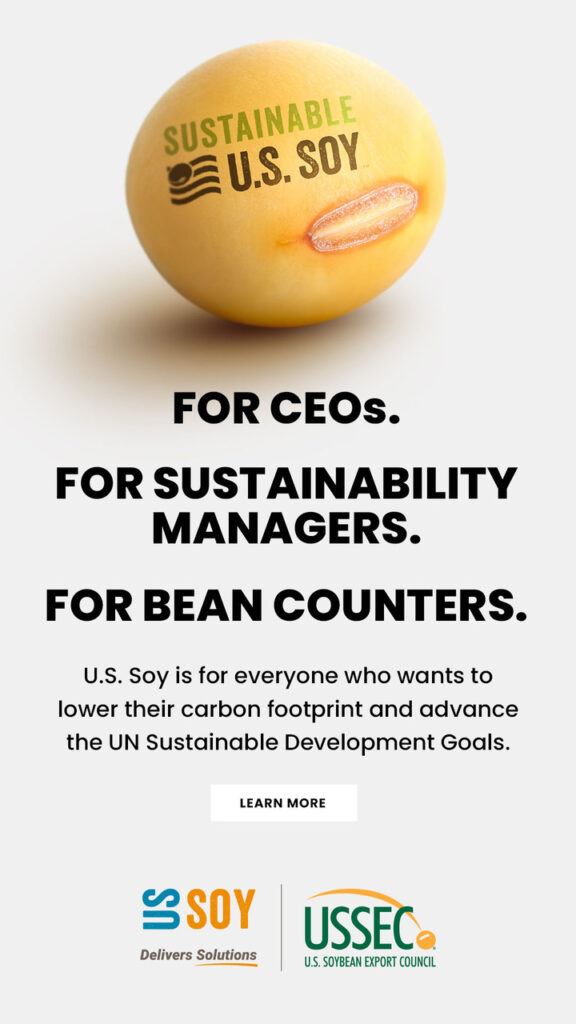U.S. Soy Talks Regenerative Ag at The Economist’s Annual Sustainability Week
- Category:
- Event followup
- Sustainability

For global organizations at the forefront of sustainability work, being part of the Economist’s annual Sustainability Week event is a smart investment – which is why U.S. Soy was front and center at the London event.
As a prime silver sponsor, the U.S. Soybean Export Council (USSEC) ensured the Sustainable U.S. Soy message was on display throughout the multi-day event, which drew over 3,000 sustainability experts from 700 organizations, primarily in the U.K. and Europe.
U.S. soybean farmer, USB director and immediate past Chair Meagan Kaiser represented U.S. Soy on a panel discussion on regenerative agriculture as part of the event’s program. She was joined by experts from BASF, McCain Foods, Heineken Group, and the Soil Association.
“This event had a room full of ‘decision level' sustainability leads for European companies,” Kaiser said, "and U.S. Soy must be aware, and if possible, involved in helping those companies set their goals and standards to be realistic and inclusive of true green alternatives.”

The subject of regenerative agriculture and its place in global conversations around sustainability continues to drive interest in U.S. Soy’s ability to offer solutions for a changing climate and growing global population.
“Being present at events like Sustainability Week gives us a valuable platform to talk directly with global leaders working in sustainability,” said Abby Rinne, USSEC Director of Sustainability. “We show that not all soybeans are the same, and how the sustainable practices of U.S. Soy farmers, the U.S. Soy Sustainable Assurance Protocol (SSAP) and the Sustainable U.S. Soy (SUSS) label are all part of the sustainable advantage that differentiates U.S. Soy from soy of other origins.
The panel discussed the role of technology in regenerative agriculture, ways to incentivize farmer adoption, and the benefits of biodiversity on the soil. Kaiser reiterated the importance of creating measurements and goals related to sustainability, so that it can be accurately managed.
“U.S. Soy farmers are thinking about sustainability in very real terms, including not only preserving, but regenerating our soils to be more productive,” Kaiser said. “A common feeling is that farms are very large and lack biodiversity; my aim was to convey how we look at productivity, soil health and biodiversity as all working together.”
Discussions that took place at the event were amplified by more than a dozen top tier media outlets in attendance, including the BBC, Reuters, The Guardian, and the Wall Street Journal.

The Economist newspaper was created in 1843 to further the cause of free trade and has evolved into an independent global media company serving an international audience. Economist Impact events are focused on empowering businesses, governments and foundations to initiate change and enable progress.
Watch the regenerative agriculture panel discussion in its entirety here.
This story was partially funded by U.S. Soy farmers, their checkoff and the soy value chain.
###
